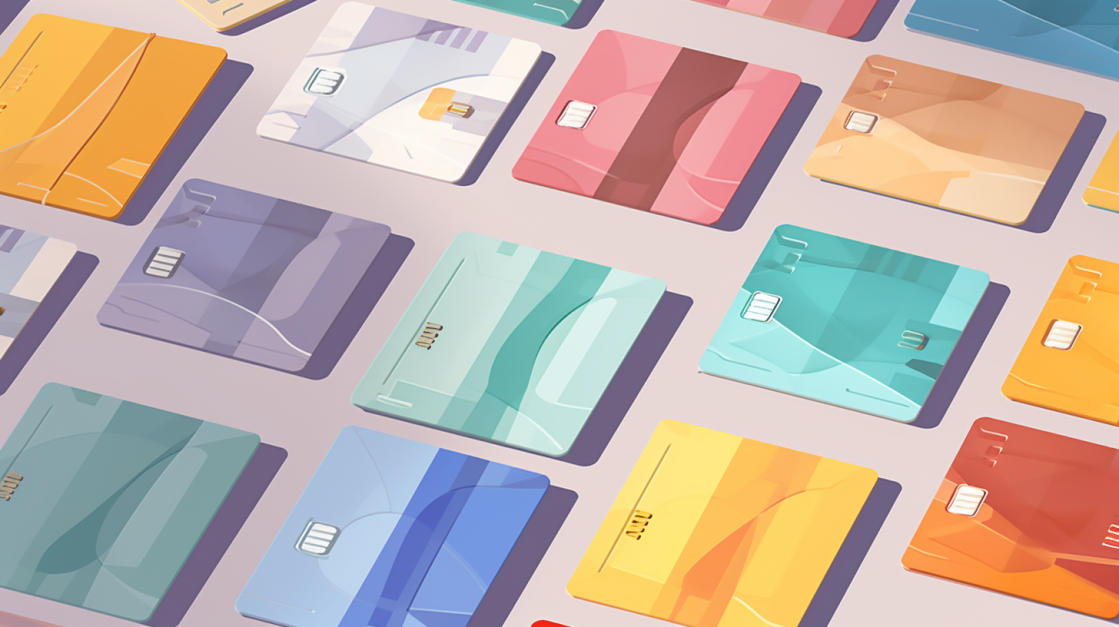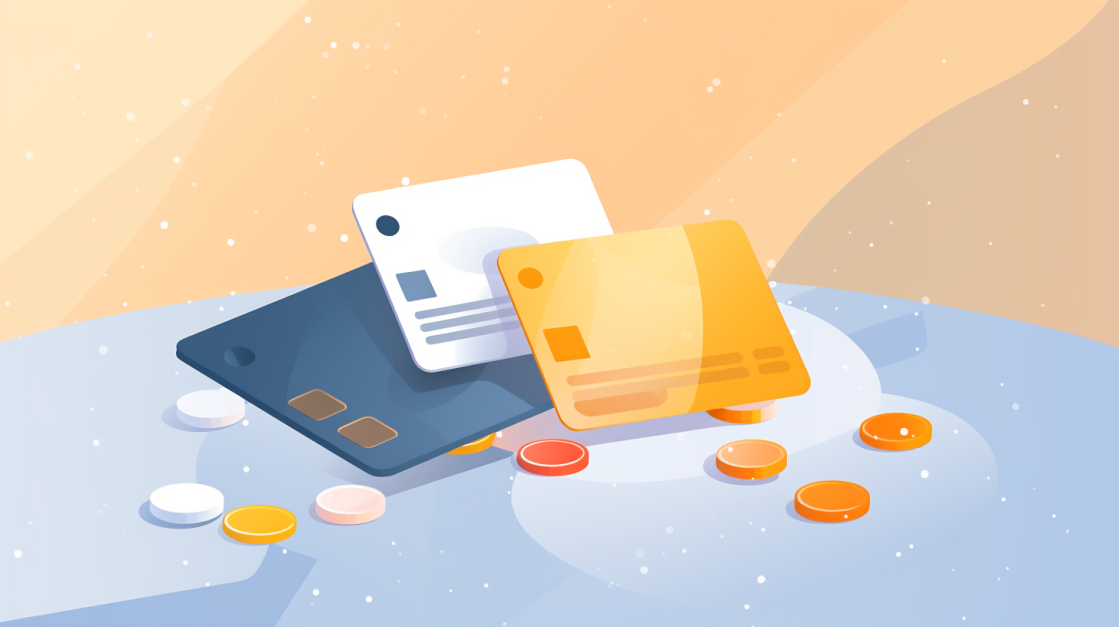Personal Loans vs Credit Cards: What’s Better?

When it comes to borrowing money, personal loans and credit cards are two options that come to mind. However, choosing between the two can be a tough decision. While both have their pros and cons, it ultimately depends on your financial goals and current situation. In this section, we will compare personal loans and credit cards to help you make an informed decision.
Key Takeaways
- Personal loans and credit cards are both borrowing options with benefits and drawbacks.
- Choosing between the two ultimately depends on your financial goals and current situation.
- It’s essential to compare the interest rates, fees, and terms of both options before deciding which is better for you.
Benefits of Personal Loans
Personal loans offer many benefits that credit cards cannot match. Firstly, personal loans generally have lower interest rates than credit cards. This means that borrowing money through a personal loan can be much cheaper in the long run than through a credit card.
Another advantage of personal loans is that they come with fixed repayment terms. This means that you can plan your finances accordingly and not have to worry about fluctuating interest rates or payments each month. Additionally, personal loans allow you to borrow larger sums of money than most credit cards. This can be especially useful if you need to make a big purchase or consolidate existing debt.
When you take out a personal loan, you will also be building your credit history. Making timely payments on your personal loan will boost your credit score and improve your creditworthiness in the eyes of lenders. This, in turn, can make it easier for you to secure other types of credit in the future, such as mortgages or car loans.
Finally, personal loans offer a sense of financial security. By taking out a personal loan, you can have a fixed plan in place for paying off debt or making a large purchase, rather than relying on the fluctuating limits and interest rates of a credit card.
Overall, personal loans can be a great option for those looking to borrow money in a cost-effective and secure manner. Consider all of the benefits of personal loans compared to credit cards before making a decision.
Benefits of Credit Cards

When it comes to managing your finances, credit cards offer a range of benefits that can make your life easier. Here are some of the ways credit cards can work to your advantage:
- Convenience: Credit cards allow you to make purchases without carrying cash or writing checks, making them an appealing option for many people. They are widely accepted by merchants, both in person and online, giving you greater flexibility in how you spend your money.
- Building Credit: Using a credit card responsibly can help you establish or improve your credit history. By making your payments on time and keeping your balances low relative to your credit limit, you can demonstrate to lenders that you are a reliable borrower. Over time, this can lead to better interest rates on loans and credit cards, saving you money in the long run.
- Rewards Programs: Many credit cards offer rewards programs that allow you to earn points, miles, cash back, or other perks for making purchases. Depending on the card, you may be able to earn rewards on everything from groceries to travel to online shopping. By choosing a card that aligns with your spending habits, you can maximize the benefits and save money on everyday expenses.
Of course, there are also potential downsides to using credit cards, such as high interest rates and the risk of overspending. However, by being mindful of your budget and using credit cards responsibly, you can enjoy the benefits without incurring unnecessary debt.
Personal Loan Interest Rates
One of the main advantages of personal loans is that they typically offer lower interest rates than credit cards. The interest rate on a personal loan is usually fixed, meaning it remains the same throughout the repayment term. The rate you’ll receive will depend on your credit score, income, and other factors such as the loan amount and term.
It’s important to compare offers from different lenders to ensure you get the best possible rate. You can use online comparison tools or contact lenders directly to get personalized quotes. Keep in mind that applying for multiple loans within a short period can negatively impact your credit score, so it’s best to narrow down your options before applying.
| Factor | Effect on Interest Rates |
|---|---|
| Credit Score | Better credit score leads to lower interest rates |
| Income | Higher income may lead to lower interest rates |
| Loan Amount | Higher loan amount may lead to higher interest rates |
| Loan Term | Longer loan term may lead to higher interest rates |
Keep in mind that interest rates are not the only factor to consider when choosing between a personal loan and a credit card. You should also take into account your financial situation, spending habits, and repayment ability to make the best decision for your needs.
Remember: When considering a personal loan, you should compare offers from different lenders to get the best interest rate. Keep in mind that the rate you’ll receive will depend on your credit score, income, and other factors.
Credit Card Interest Rates

Understanding credit card interest rates is crucial for managing your credit card debt and avoiding unnecessary charges. Credit card interest rates can vary based on various factors and can have a significant impact on your overall balance.
The annual percentage rate (APR) is the rate at which you will be charged interest on any outstanding balances. It is important to note that credit card companies can have different APRs for different balances, such as purchases, balance transfers, and cash advances.
The interest rates on credit cards are often much higher than those of personal loans, making it easy to accumulate high amounts of debt. If you only make minimum payments, you could end up paying much more in interest over time.
To manage credit card interest rates, it’s important to pay your balances in full and on time each month. If you can’t pay the full balance, try to pay more than the minimum payment to reduce the amount of interest you will be charged.
TIP: If you have a high-interest credit card balance, consider transferring the balance to a credit card with a lower interest rate or consolidating your debt with a personal loan with a lower interest rate.
Credit Card Rewards
When used responsibly, credit cards can offer many perks, including rewards programs that let you earn points towards travel, cashback, or other valuable benefits.
There are many types of credit card rewards programs available, so it’s important to choose a card that aligns with your lifestyle and spending habits. For example, if you travel frequently, a travel rewards card may offer the most value, while a cashback card may be a better choice for those who prefer to earn money back on everyday purchases.
Some credit card rewards programs may also include other benefits, such as discounts on dining, entertainment, or shopping. These perks can add up quickly and provide even more value to your credit card use.
It’s important to note that credit card rewards programs often come with certain terms and conditions, such as minimum spending requirements or expiration dates on points. Be sure to read the fine print and understand the details of your rewards program to maximize its value.
Overall, credit card rewards can be a great way to earn valuable benefits while using credit cards for your purchases. Just be sure to use your cards responsibly and pay off your balances in full each month to avoid interest charges and debt accumulation.
In the next section, we’ll explore the topic of credit card debt and how to manage it effectively.
Credit Card Debt
One of the biggest drawbacks of credit cards is the ability to accumulate high-interest debt quickly, which can become a burden on your finances. However, there are ways to manage and pay off credit card debt to avoid negative impacts on your credit score.
The first step in managing credit card debt is to create a budget and prioritize paying off high-interest balances first. This can involve making adjustments to your spending habits and finding ways to increase your income, such as taking on a side job or selling unused items around your home.
Another option for managing credit card debt is to transfer balances to a card with a lower interest rate or take advantage of balance transfer offers. However, it’s important to read the fine print and understand any fees and terms associated with balance transfers before making a decision.
If you find yourself struggling to pay off credit card debt, consider reaching out to a credit counseling agency or a financial advisor for guidance and support. They can help you create a debt management plan and negotiate with creditors on your behalf.
Remember, falling behind on credit card payments can have serious consequences, including late fees, increased interest rates, and damage to your credit score. By taking proactive steps to manage and pay off credit card debt, you can regain control of your finances and work towards achieving your financial goals.
Personal Loan Application Process:

When I decided to apply for a personal loan, I knew I needed to be prepared and informed to ensure a successful outcome. The following steps helped me navigate the personal loan application process:
- Check my credit score: Before applying for a personal loan, I made sure to check my credit score and credit report. This helped me identify any errors or issues that needed to be addressed before applying.
- Research lenders: I researched various lenders and their loan offerings to find the best fit for my needs. I considered factors such as interest rates, repayment terms, and fees.
- Gather required documentation: I gathered the necessary documentation for my loan application, including proof of income, employment verification, and identification.
- Pre-qualify: Some lenders offer pre-qualification, which allows you to see if you’re eligible for a loan and what interest rate you may qualify for without impacting your credit score.
- Submit the application: Once I had all my documents and information in order, I submitted my loan application. Some lenders offer online applications, making the process quick and convenient.
- Wait for a decision: After submitting my application, I waited for the lender’s decision. This usually takes a few business days.
- Review and accept the loan: If approved, I carefully reviewed the loan terms and conditions, including interest rate, repayment schedule, and fees. I made sure I understood and agreed to everything before accepting the loan.
- Use the funds: After accepting the loan, the funds were deposited into my bank account, and I was able to use them for my intended purpose.
By following these steps, I was able to successfully apply for a personal loan and receive the funds I needed.
Personal Loans vs Credit Cards: Which is Better for You?
Choosing between a personal loan and a credit card can be a challenging decision. Both options have their pros and cons, and the choice ultimately depends on your specific financial needs and goals. Let’s take a closer look at the comparison between personal loans and credit cards to help you make an informed decision.
Cost
The cost of borrowing money is a crucial factor to consider when choosing between a personal loan and a credit card. Personal loans generally have lower interest rates than credit cards, which can save you money in the long run. Additionally, personal loans typically come with fixed repayment terms, which means you’ll know exactly how much you need to pay back each month. On the other hand, credit cards often have higher interest rates and variable payment terms, which can make it more difficult to budget and pay off debt.
Flexibility
When it comes to flexibility, credit cards are the clear winner. They allow you to make purchases wherever and whenever you need to, without having to apply for a new loan or line of credit each time. Additionally, credit cards offer a revolving line of credit, which means you can borrow as much or as little as you need, up to your credit limit. Personal loans, on the other hand, provide a lump sum of money upfront and require you to pay it back in fixed installments over a set period of time.
Suitability for Different Financial Situations
The suitability of a personal loan or credit card depends on your specific financial situation. If you need to borrow a large sum of money for a specific purpose, such as a home renovation or debt consolidation, a personal loan may be the better option. However, if you need to make frequent smaller purchases or need access to credit for emergencies, a credit card may be more suitable. Additionally, if you have a low credit score, you may find it easier to qualify for a credit card than a personal loan.
Personal Loan vs Credit Card Comparison
Here’s a quick comparison of personal loans and credit cards to help you make a decision:
| Personal Loans | Credit Cards | |
|---|---|---|
| Interest Rates | Lower | Higher |
| Repayment Terms | Fixed | Variable |
| Flexibility | Less | More |
| Borrowing Limits | Higher | Lower |
| Credit Score Requirements | Higher | Lower |
Ultimately, the decision between a personal loan and a credit card depends on your specific financial situation and needs. Consider factors such as cost, flexibility, and suitability for your financial goals before making a decision.
Conclusion

After careful consideration of the benefits, interest rates, rewards, debt management, and application processes, it’s important to evaluate your own financial goals and preferences to determine whether a personal loan or a credit card is the better choice for you. Both options have their advantages and drawbacks, and the best choice ultimately depends on your unique circumstances.
If you need to borrow a large sum of money and want the stability of a fixed repayment schedule, a personal loan may be the better option for you. On the other hand, if you value the convenience of making purchases with a credit card and earning rewards points, a credit card may be the way to go.
Remember to weigh the costs of each option carefully, including the interest rates and potential fees, and factor in your own ability to make repayments on time. By doing so, you can make an informed decision about whether a personal loan or a credit card is the better fit for your financial needs.
FAQ
Q: What is the difference between a personal loan and a credit card?
A: A personal loan is a fixed amount of money borrowed from a lender, typically with a fixed repayment term and interest rate. On the other hand, a credit card allows you to borrow money up to a certain credit limit and make minimum monthly payments.
Q: Which option is better for my financial needs: a personal loan or a credit card?
A: The better option depends on your specific financial needs. If you need a large amount of money upfront for a specific purpose, such as debt consolidation or home improvement, a personal loan may be more suitable. If you prefer flexibility and the ability to make smaller purchases over time, a credit card might be a better choice.
Q: What are the benefits of personal loans?
A: Personal loans offer several benefits, including lower interest rates compared to credit cards, fixed repayment terms, and the option to borrow larger sums of money.
Q: What are the benefits of credit cards?
A: Credit cards offer advantages such as the convenience of making purchases, the ability to build credit history, and the opportunity to earn rewards points or cashback on your spending.
Q: How do personal loan interest rates work?
A: Personal loan interest rates are determined by various factors, including your credit score, income, and the lender’s assessment of your risk profile. It’s important to compare offers from different lenders to get the best rate.
Q: What should I know about credit card interest rates?
A: Credit card interest rates can vary depending on the type of rate (fixed or variable) and your creditworthiness. To minimize interest charges, it’s important to pay off your full statement balance each month.
Q: What are credit card rewards?
A: Credit card rewards programs allow you to earn points, cashback, or travel rewards for your spending. These rewards can be redeemed for various benefits, such as travel discounts, gift cards, or statement credits.
Q: How can I manage credit card debt?
A: To manage credit card debt effectively, it’s important to make timely payments, avoid carrying high balances, and consider options such as balance transfers or debt consolidation loans to reduce interest charges.
Q: How do I apply for a personal loan?
A: The personal loan application process typically involves providing necessary documents, such as proof of income and identification, meeting the eligibility criteria set by the lender, and following the steps outlined by the lender to submit your application.
Q: Which is better for me: a personal loan or a credit card?
A: The better choice depends on your individual financial situation and goals. Consider factors such as cost, flexibility, and suitability for your needs to determine whether a personal loan or a credit card is the right fit for you.






